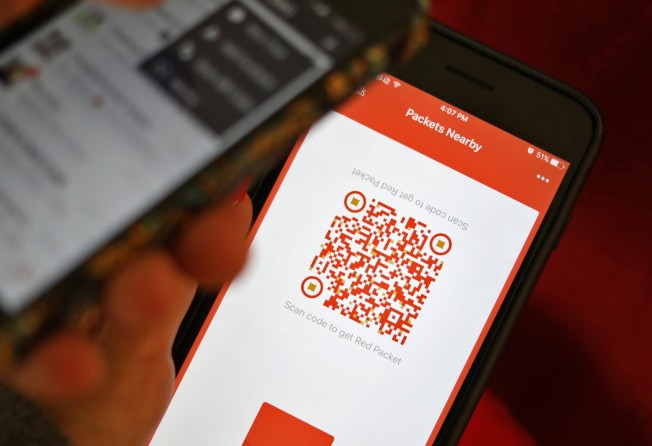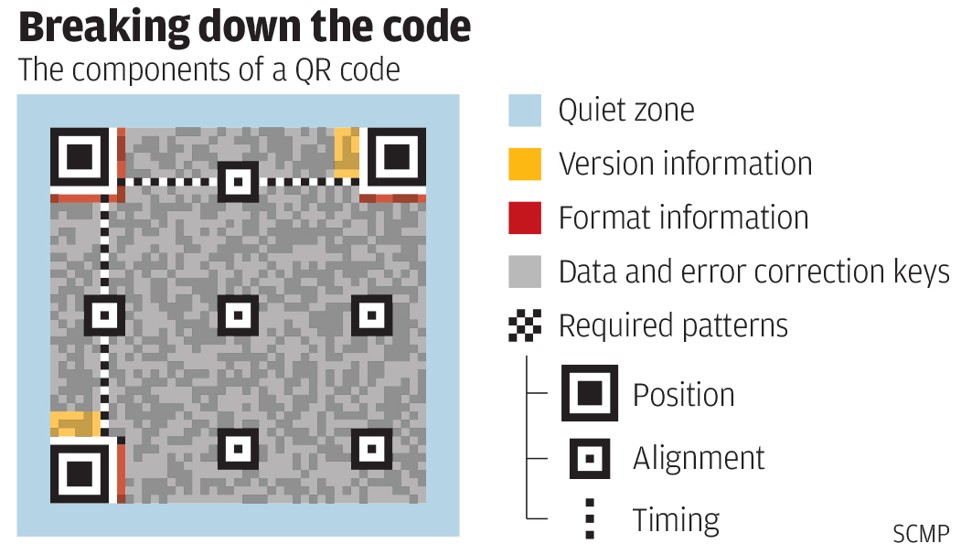Apple jumps on China’s QR code bandwagon amid sharp drop in sales
The two-dimensional barcodes are a staple of life for the mainland’s 700 million mobile internet users. Now Apple wants a slice of the action

Apple has added QR code-reading to its cameras in an attempt to woo users in China, where the American technology giant has been losing ground to local rivals.
Though they’ve enjoyed limited popularity in the west, the two-dimensional barcodes have become an everyday essential for China’s more than 700 million mobile internet users. And it seems that Apple now wants a slice of the action.
The new QR code support was the main feature aimed at the Chinese market unveiled by the California-headquartered company when it gave a preview of its iOS 11 operating system at Apple’s Worldwide Developers Conference on Tuesday.
It will be available when iOS 11 is officially launched in the autumn and is expected to bring added convenience for mainland users as it will allow them to scan QR codes via their iPhone cameras without having to open individual apps anymore, Apple said in the presentation.
The new operating system comes with five other ‘localised’ features for Chinese consumers. These include Shanghainese dictation, the ability to use a phone number as Apple ID, and SMS fraud extension – a service that warns users of potentially fraudulent text messages.
“It is a wise move for Apple to embrace QR code as a way to better localise [its offerings] in China, given the decline of its iPhone shipments in the country,” said Jin Di, research manager at IDC China.
Apple, the most valuable company in the world, captured almost 80 per cent of global smartphone profits last year. But in China it has seen stiff competition from domestic rivals.
It is a wise move for Apple to embrace QR code as a way to better localise [its offerings] in China, given the decline of its iPhone shipments in the country
Apple saw a 23 per cent year-on-year drop in shipment volume last year in the mainland, the core driving force for its sales in Greater China, the firm’s second largest geographic market for revenue.
“But whether or not Chinese customers will buy into this new QR feature is still unknown as Alibaba and Tencent have done such a successful job of making people get used to QR codes and scanning those codes via their apps,” she added.
A QR code – short for quick response code – consists of a random pattern of tiny black squares against a white background, capable of holding 300 times more data than a traditional one-dimensional code.

The popularity of scan-to-pay applications has been an important factor behind Alibaba and Tencent’s 90 per cent combined share of China’s US$5.5 trillion mobile payments market.
But use of camera scanning capabilities hasn’t stopped at payments. KFC has allowed customers to order food by scanning. And China’s popular bike rental start-ups Ofo and Mobike process 40 million orders a day because users can rent a bike whenever and wherever they want simply by scanning the QR code on each bicycle.
Beijing-based Mobike said it will allow iPhone users to unlock and rent its bikes through the new iOS feature.
“The success of the Apple QR feature in China really depends on how many Chinese app developers want to collaborate with Apple and the extent of that collaboration,” said Ma Shicong, an analyst with the Beijing-based internet consultancy Analysys International.
Tencent’s blockbuster social app WeChat, which has more than 900 million monthly active users, said on Tuesday that it will allow Apple users to add new friends on WeChat by scanning a QR code using their iPhone cameras. It also called for WeChat users to contribute bold ideas so that Apple and WeChat can come up with more innovative ways to “play together”.